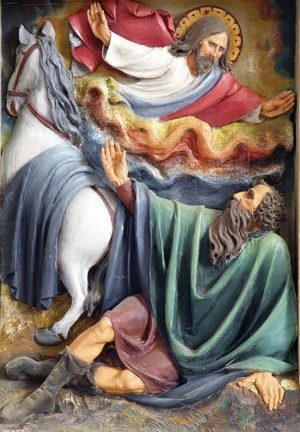There is always a summit/zenith in every discourse/argument/speech or presentation. This is usually the highest point and summary of the whole discussion, revealing in clear terms, the hallmark of the entire discourse. This summit would either create rejection or acceptance from the audience, as a result of the clarity in the point made.
Sequel to the foregoing, the sixth chapter of John’s Gospel opens up with Jesus’s feeding of the crowd and consequently, his corresponding interaction with them – teaching them the doctrine of the Eucharist – the Bread of Life, the Sacrament of his Body and Blood as superior to the material bread that satisfies their hunger temporarily. In today’s Gospel (cf. Jn. 6:52-59), Jesus reaches the summit of his teaching as he speaks in clear terms: “…I tell you most solemnly if you do not eat the flesh of the Son of Man and drink his blood, you will not have life in you. Anyone who does eat my flesh and drinks my blood has eternal life, and I shall raise him up on the last day. For my flesh is real food and my blood is real drink…” We are told that this made the Jews argue with each other. The subsequent verses would demonstrate their acceptance or rejection of Jesus’ teaching.
By asking us to eat his flesh and drink his blood, Jesus calls us to strengthen our relationship with him and enter into full communion with him. Just as Jesus is always in communion with his Father, so he wants us to be always in communion with him by receiving his Body and Blood. The Eucharist is a very special expression of our communion with him. In the Eucharist, Christ reveals himself to us and we recognize him at the Breaking of Bread. Put differently, our Eucharistic fellowship reveals a special and personal encounter with the risen Lord. Inasmuch as he often takes the initiative by coming to meet us, our openness and acceptance of him are required. Similarly, in today’s First Reading (cf. Acts 9:1-20), we learn of Christ’s encounter with Saul on his way to Damascus to persecute the Christians. Christ’s encounter with Saul led to his conversion and full communion with him; consequently, he started preaching in the synagogues: “Jesus is the Son of God”. Later, Saul would explain to us through his writings, this mystery of the Eucharist in his first letter to the Corinthians.
Dear friends in Christ, the Gospel message of Jesus Christ has been brought to us in clear terms. At every Eucharistic meal, we eat the flesh and drink the blood of the Son of Man in order that we might draw life from him, and like Saul in the First Reading, we would be able to preach boldly about him: “Jesus is the Son of God”. This is the essence of the Holy Mass: after communing with God at the Eucharistic table, we are ‘sent’ at the end of the Mass to “Go forth, and announce the Gospel of the Lord”. The task of announcing the “Good News” as reiterated in today’s Responsorial Psalm is that of every baptized. This mission would be more effective when we become ‘living gospels’ for our fellow man to read and draw nearer to Christ.
As we celebrate Worker’s Day today, may St. Joseph the worker continually be our model in recognizing the dignity of human labour as a call to share in God’s creative work. Above all, may God grant us the grace work tireless like Joseph in presenting Christ to the world through the Eucharist we receive. Amen.
Shalom!
© Fr. Chinaka Justin Mbaeri, OSJ
Paroquia Nossa Senhora de Fatima, Vila Sabrina, São Paulo, Brazil
nozickcjoe@gmail.com / fadacjay@gmail.com


